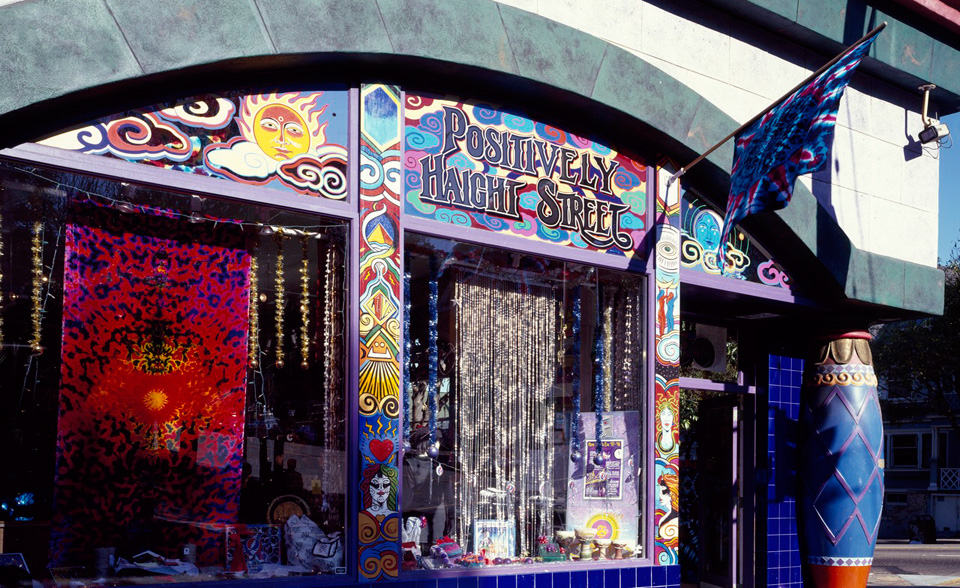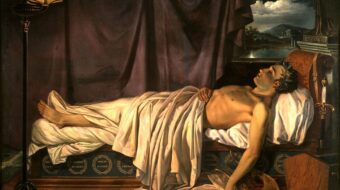
A mass social phenomenon occurred 50 years ago during the “Summer of Love,” when as many as 100,000 mostly young people, sporting hippie fashions of dress and behavior, converged in San Francisco’s Haight-Ashbury neighborhood. Although hippies also gathered in many other places in the U.S., Canada and Europe, San Francisco was the most publicized countercultural epicenter. The mere fact that Nancy Pelosi represents a San Francisco district labels her, in some quarters, as an out-of-touch radical.
Hippies, sometimes called flower children, were an eclectic group that rejected the conformist and materialist values of modern life. Many were suspicious of the government, rejected consumerist values, and generally opposed the Vietnam War, then reaching its height. A few were interested in politics; others were concerned more with art, music, and poetry, or religious and meditative practice. Many were inspired by the Beat Generation of authors of the 1950s, who had flourished in San Francisco.
The prelude to the Summer of Love was a celebration known as the Human Be-In at Golden Gate Park on January 14, 1967. James Rado and Gerome Ragni were in attendance, getting inspired to create their musical drama Hair. Also at this event, LSD guru Timothy Leary voiced his phrase, “Turn on, tune in, drop out,” which became the catchword for the entire hippie counterculture. The term “dropping out” became popular among many high school and college students who abandoned their education for a summer of sex, drugs, and rock ’n roll.
Many among the New Left welcomed a cultural “revolution,” in the words of the hippie newspaper, the San Francisco Oracle, “with a renaissance of compassion, awareness, and love, and the revelation of unity for all mankind.” But with the world in crisis, and young men being picked off every day to die in a futile imperialist war halfway across the globe, turning on, tuning in and dropping out with drugs looked more like self-indulgent escapism than freedom.
The term “Summer of Love” originated with the formation of the Council for the Summer of Love during the spring of 1967 as a response to the convergence of young people on the Haight-Ashbury district, which began with college and high-school students streaming in during the 1967 spring break. The bigger influx came once schools ended for the summer. Local area music festivals featuring such bands as The Who, Grateful Dead, the Animals, Jefferson Airplane, Quicksilver Messenger Service, The Jimi Hendrix Experience, Otis Redding, The Byrds, and Big Brother and the Holding Company featuring Janis Joplin, attracted many thousands.
The Haight-Ashbury could not accommodate the invasion of people, and the neighborhood quickly deteriorated, with overcrowding, homelessness, hunger, drug problems, and crime. In an emphasis on sharing and community, The Diggers established a Free Store, and a Free Clinic for medical treatment.
Grateful Dead guitarist Bob Weir commented: “Haight Ashbury was a ghetto of bohemians who wanted to do anything—and we did, but I don’t think it has happened since. Yes, there was LSD. But Haight Ashbury was not about drugs. It was about exploration, finding new ways of expression, being aware of one’s existence.” In that sense, the hippie movement opened minds to other possibilities, contributing to the explosion of the LGBTQ and women’s movements in the following decade.
Musician John Phillips of the band The Mamas & the Papas wrote the song “San Francisco (Be Sure to Wear Flowers in Your Hair)” to promote both the Monterey Pop Festival and to popularize the flower children. Released on May 13, 1967, the song was an instant success. The single purportedly sold more than 7 million copies worldwide. Other cities, particularly London, saw similar hippie movements. British bands and fashion made substantial contributions to the culture.
After many people left at the end of summer to resume their college studies, those remaining in the Haight staged a mock funeral entitled “The Death of the Hippie” on October 6, 1967. Organizer Mary Kasper explained the intended message: “We wanted to signal that this was the end of it, to stay where you are, bring the revolution to where you live and don’t come here because it’s over and done with.”
In New York, the rock musical drama Hair, which told the story of the hippie counterculture and sexual revolution of the 1960s, opened Off-Broadway on October 17, 1967. Activism on various social and political fronts continued. Opposition to the war in Vietnam was still growing, both on- and off-campus: A huge demonstration took place at the Pentagon that October. And the work of the labor and civil rights movements proceeded apace. Perhaps having gotten something “out of their system,” the Summer of Love veterans returned home to get the system out of them.
This year for the 50th anniversary San Francisco is planning numerous events and art exhibitions. In Liverpool, the city is staging a festival commemorating the 50th anniversary of the June 1, 1967 release of the album Sgt. Pepper’s Lonely Hearts Club Band by The Beatles.
Adapted from Wikipedia.
Eric A. Gordon contributed to this article.












Comments